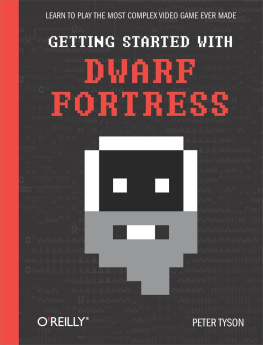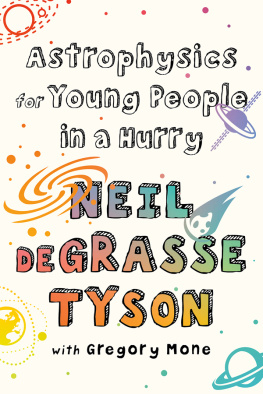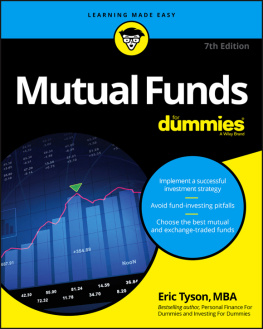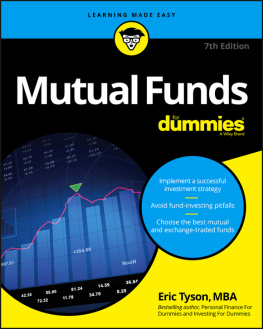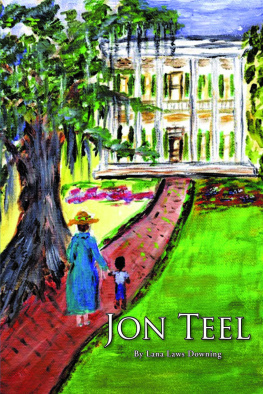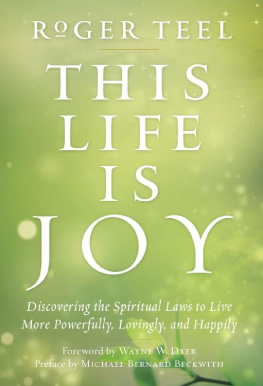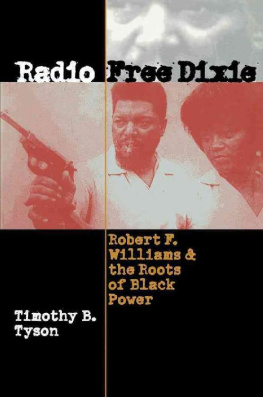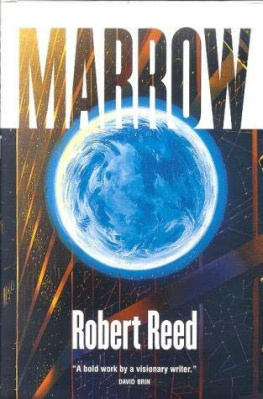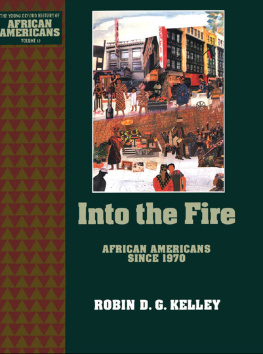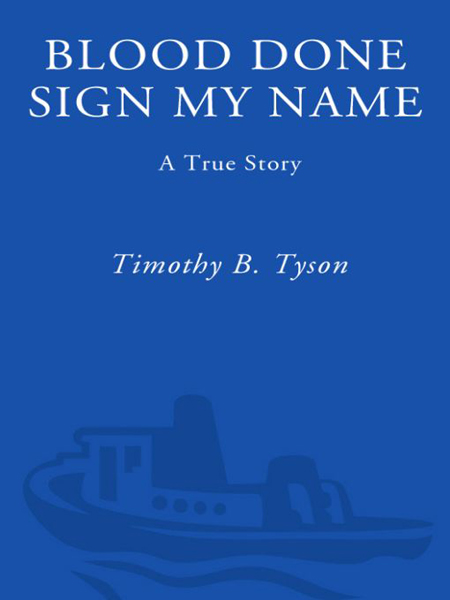
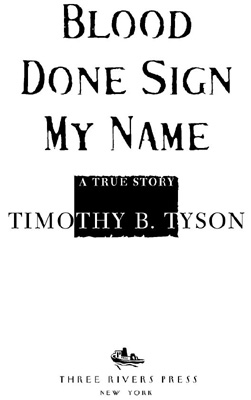
Table of Contents
to my Mama and Daddy
Aint you glad, aint you glad,that the blood done sign your name?
AFRICAN AMERICAN SPIRITUAL
CHAPTER 1
BAPTISM
DADDY AND ROGER and em shot em a nigger. Thats what Gerald Teel said to me in my familys driveway in Oxford, North Carolina, on May 12, 1970. We were both ten years old. I was bouncing a basketball. The night before, a black man had said something at the store to Judy, his nineteen-year-old sister-in-law, Gerald told me, and his father and two of his brothers had run him out of the store and shot him dead. The mans name was Henry Marrow, I found out later, but his family called him Dickie. He was killed in public as he lay on his back, helpless, begging for his life.
I was stunned and bewildered, as if Gerald had informed me that his family had fried up their house cat and eaten it for breakfast. We did not use that word at our house. It was not that I had never heard it or had never used it myself. But somehow the children in my family knew that to utter that word in the presence of my father would be to say good-bye to this earthly life. My daddy was a Methodist minister, an Eleanor Roosevelt liberal, he called himself in later years, and at our house nigger was not just naughty, like hell or damn. It was evil, like taking the Lords name in vain, maybe even worse. And now my friend Gerald was using it while talking about his daddy and his brothers killing a man.
Before Gerald could say anything more, my mother opened the front door of our house and called me in for supper. What are we having? I yelled back at her.
I am not announcing my menu to the neighborhood, Mama said in a clear but quiet voice. I hurried inside, dumbstruck, wondering what the grown-ups in my world were going to say about Geralds news. Could this be true? Or was it just a little boys boasting? Mama and Daddy would know.
Mama wielded an abundantly sharp sense of how things were and were not done. That was why she was not about to advertise my dinner menu up and down Hancock Street, as she reminded me when I came into the kitchen. Pork chops, mashed potatoes and gravy, peppery cabbage simmered with fatback, and crisp fried cornbread served with sweet iced tea seemed no cause for shame. Mrs. Roseanna Allen, the black woman who worked for us, had also made us a chocolate pie that afternoon, as she often did when I begged her. But the details of our supper were beside Mamas point. Yelling like that was tacky, a label that applied to a disquieting number of my habits.
I figured that Mama and Daddy would talk to us about what had happened, but instead an eerie hush hung over the supper table. Somewhat oddly, Daddy refrained from his custom of interviewing us one by one about our day. He and Mama exchanged knowing words and weighted glances whose meanings were indecipherable to me. My twelve-year-old brother, Vern, and I talked halfheartedly about somethinghow fast Dudley Barnes, who pitched for A&W Root Beers Little League nine, could throw a baseball, something like that. But a deep silence had fallen among us.
After supper, my little sister Boo and I crept out of the house and down to the corner, where we huddled on the sidewalk behind Mrs. Garlands cement wall, across the street from the Teel house. Boo was seven years old, blond and freckly, by turns deferential and officious in the way of little sisters, and she went wherever I did, provided I let her. In the Bible, Ruth tells Naomi, Entreat me not to leave thee; or to return from following after thee: for whither thou goest I will go; and where thou lodgest, I will lodge, and while this was frequently quoted as a tribute to filial devotion, I always noted that we never heard from Naomi on the point. When I came home from church one Sunday and announced that I was going to become a missionary to Africa, Boo immediately declared her intention to become a nurse and accompany me. I shot back, What do you think I am going to Africa for? But truth be told, I was glad to have her with me this particular evening.
We could see the house clearly through the budding crape myrtles that laced the long traffic island in the middle of Main Street. Geralds family lived in a gracious, older two-story structure with white columns, wide porches, and a carport on one side that must have been built originally for carriages. At least a dozen men with shotguns and rifles stood guard on its porches as Boo and I peered across the corners of Front and Main Streets. A couple of the men were draped in white hoods and robes, but most of them looked for all the world like our own father when he went bird hunting. We did not know exactly how these men pertained to Geralds announcement, but we knew something perilous was unfolding.
For one thing, neither of us had ever seen anyone who didnt live there go into the Teel house. I played with Gerald Teel practically every day, but the boys in our neighborhood came to my house or we ran the woods and fields that stretched out beyond my backyard. Sometimes we smoked Jeff Danielss mothers Tareyton cigarettes down by the creek. We played football in the front yard of the old Hancock place, a once palatial but now rotting three-story white structure with huge wooden pillars that stood empty across the street from my house.
Gerald, Jeff, and I wore the same brand of brogans as a kind of uniformour look was straight-leg blue jeans, army surplus jackets, and those brownish orange work bootsand we fought together in the forbidden BB-gun wars that raged in our neighborhood on Saturday mornings. Gerald was a slight, olive-skinned boy with dark hair and eyes. He rarely talked much. We considered him a respectably tough kid, a member of the gang in good standing, but he also had a kind of whipped-dog manner, a shyness that said something was wrong. Youd say we were friends. But I did not visit in Geralds house and, as far as I knew, neither did anybody else. All Mama would say, in her offhand, gracious way, was that they werent really our kind of folks, but it was worse than that. Everybody was afraid of Geralds daddy, who never spoke in my presence until many years had passed.
That night, after kneeling beside the bed with my father to say my prayers as we usually did, I lay me down to sleep on the cool, clean sheets, wondering about what had happened and fearing, without really knowing what to fear, the things that might happen now. The attic fan in the top of the house pulled the gauzy white curtains inward on a cooling breeze; two weeks into May it was already hot, and not everyone had air-conditioning in those days. From my upstairs window, I could see the blinking red light of Oxfords radio tower. The raspy, playful voice of Juliuss Jukebox, WOXFs Little Round Brown Mound of Sound, beamed from the transistor radio propped in my windowsill, announcing song dedicationsThis one goes out from Shirley to S.O.S.and spinning Otis Redding, James Brown, or Aretha Franklin. Every night that summer, the ominous pulse of Marvin Gayes I Heard It Through the Grapevine pounded on the airwaves, and what may have seemed a haunting anthem of lost love for some listeners sounded a dire warning to me. Sleep was slow to come.
While I slumbered, six blocks away in downtown Oxford hundreds of young blacks exploded into rage. At least half a dozen people had witnessed the murder in Grab-all, the black ghetto where Mr. Teels store was located. Word traveled fast. This wont no goddamn murder mystery, one of the young blacks spat, and the son of a bitch lived three blocks from the police station. Rumors flew through Oxford that the magistrate, J. C. Wheeler, refused to swear out a warrant against the Teels, and that the police were not planning to arrest anyone. This poured the gasoline of indignation onto the flames of vengefulness. When Dickie was first killed, one black witness to the murder told me years later, people in Grab-all was talking about everything white
Next page

